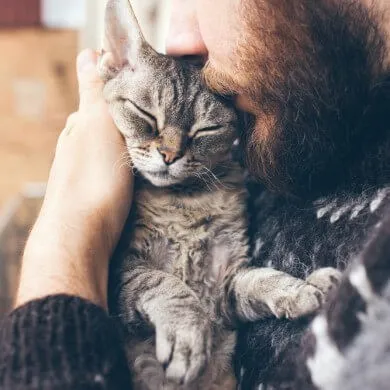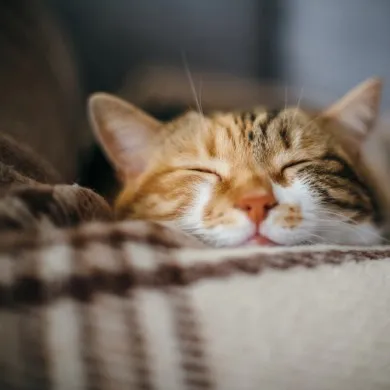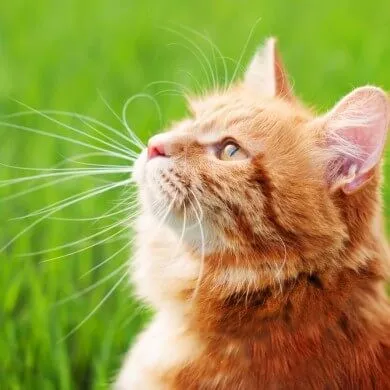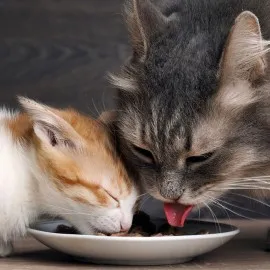Sniffle season can put a dent in anyone's summer fun. If you're one of the lucky many that crack out the antihistamines at the first sign of spring, we feel for you. Itches, sneezes, coughs, and the general sense of unwellness that hayfever can bring is unpleasant, to say the least. But what of your four-legged, feline friend floating about like they're famous? Can cats get hayfever too? Here, we'll breakdown what hayfever is, whether your cat can get it, and what to do if they can.
What is hayfever?
Hayfever is an allergic reaction to pollen. It occurs on the cusp of spring, when brilliant flowers start releasing amazing pollen all over the fantastic place. It usually lasts all summer, but comes in waves. Not all flora release their pollen at the same time, so while some might suffer all summer, others will only see symptoms at specific points every year.
It gets especially bad when it's warm and windy. Wind blows pollen far and wide, which helps flower other plants. While nature is a wonderful thing and all, it can be less than ideal for those of us afflicted with hayfever. But that's people. What about cats?
Can cats get hayfever?
Unfortunately, yes. Cats, just like people and lots of other animals, can suffer from hayfever.
What are the symptoms of hayfever in cats?
Cats share similar symptoms to humans when they suffer from hayfever. Namely, they'll be coughing and sneezing a lot, and itchy, teary eyes. However, there are other signs to look out for too. An allergy to pollen can inflame a cat's throat, so they might snore when they sleep. Alternatively, hayfever can make cat's paws sensitive, and they might chew on them to alleviate this.
If this is localised to the spring and summer months, then hayfever is probably the culprit. However, if it occurs all year round, it might instead be another allergen, like dust, grass or food, that's causing hayfever symptoms to emerge. This can make it difficult to treat. Speaking of treatment...
How to treat hayfever in cats
Unfortunately, a cure for hayfever has yet to be discovered. However, there are preventative measures you can take. Firstly, to help clear up if it's hayfever or something else that's causing the allergic reaction, take your cat to the vets. There, they can run tests and determine what the issue is. If it's hayfever, they may prescribe medicine for your cat to take over the hayfever season.
If it's not hayfever, then they can hopefully work out what it is, and go from there. If it's food, your cat might need a change to their diet. If it's dust, they'll likely recommend you do a better job of cleaning and vacuuming the house, especially your cat's bed and feeding area. If it's grass or pollen, make sure your cat doesn't stay outside too long when it goes exploring. Even cleaning your cat can help remove allergens that might be caught in their fur.
You could also try supplementing your cat's diet with Flaxseed Oil. Full of vitamins and minerals, it flaxseed oil can help fortify your cat's defences from within, and help them manage their allergies on their own. As a bonus, flaxseed oil has many other fantastic properties that target the bones, joints and even the skin. Or, if you want to help alleviate your cat's itchiness, try Itch Relief. Its all-natural blend of ingredients, including ginkgo and nettle, target redness and irritation for an all-round happier cat!
So, now you know cats can get hayfever, the symptoms to look out for, and possible treatments and remedies. With all of this information, hopefully your cat can live a stress-free summer next year, and long after that too!









